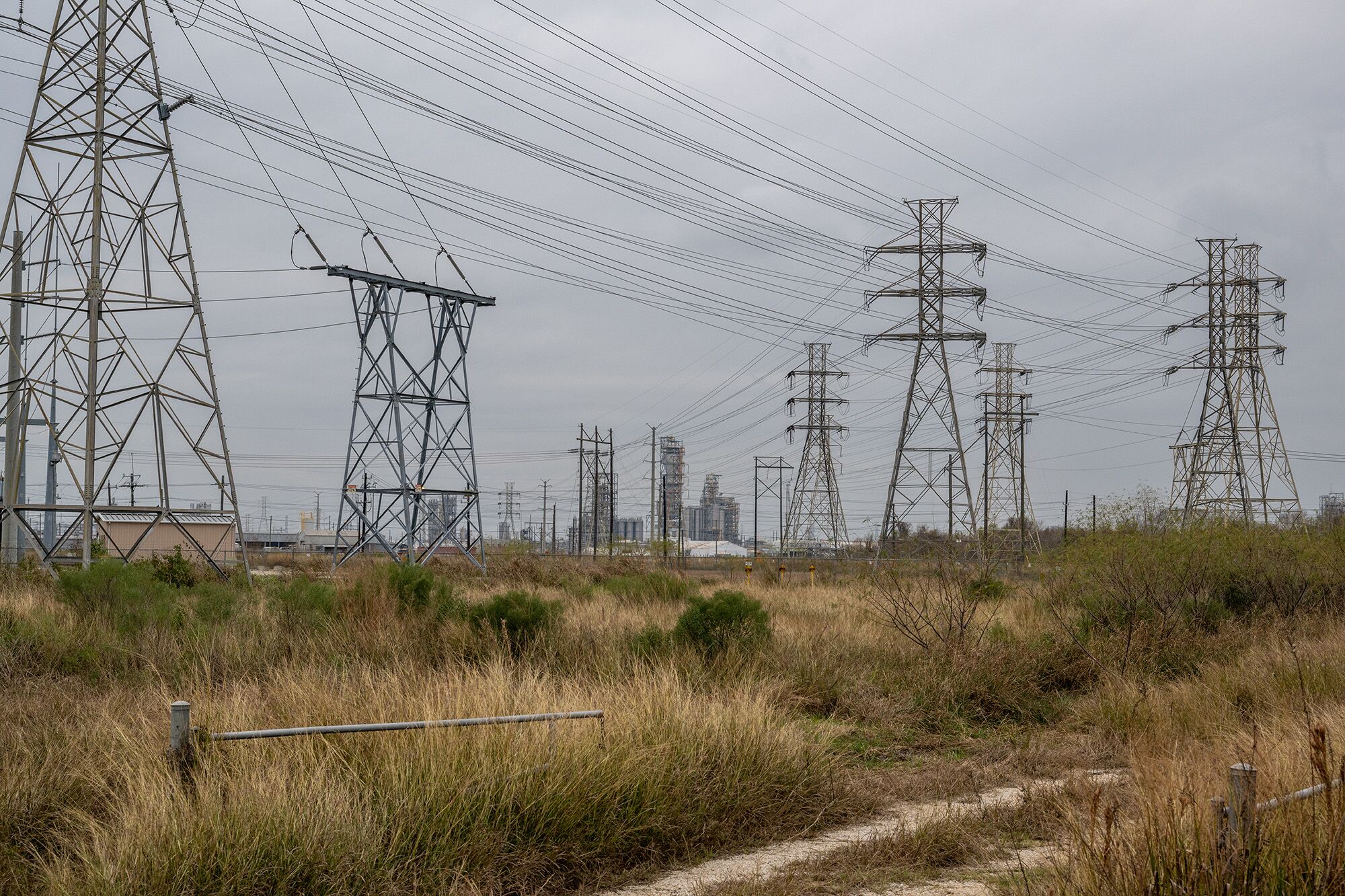(Bloomberg) —
One of the dullest themes in climate investing was nevertheless one of its most profitable last year.
While investments in wind and solar mostly resulted in losses in 2023, fund managers who piled into companies tied to the electrical grids that distribute clean energy enjoyed double-digit returns. The Nasdaq Clean Edge Smart Grid Infrastructure Index ended last year up more than 20%, led by companies such as Eaton Corp., ABB Ltd. and Schneider Electric SE, compared with the more than 20% decline of the S&P Global Clean Energy Index.
Analysts at the Global Wealth Management unit of UBS Group AG describe the grid, along with assets tied to waste management, as clear “bright spots” for green investors.
Electricity grids will require at least $21.4 trillion of investments by 2050 to support a global net-zero trajectory, according to estimates from BloombergNEF. BNEF analyst Lara Hayim wrote in a recent research note that the grid is the linchpin upon which the fate of the energy transition hinges, with the current investment shortfall emerging as a “bottleneck.”
“Grid stocks should do very well, but many things like transformers are already sold out,” said Andrew John Stevenson, a senior analyst at Bloomberg Intelligence. He said the grid “is the easiest thing” in the Biden administration’s Inflation Reduction Act into which investors can “pump big dollars.”
The importance of the electricity grid “is growing as demand for clean electricity grows,” analysts at Jefferies Financial Group Inc. wrote in a Jan. 11 note following a client event at which the investment bank hosted the International Energy Agency. By 2040, expansion of grids needs to reach double the level seen over the past two decades in order to meet the needs of the green transition, the analysts said.
Read More: Net-Zero Power Grid Requires $21 Trillion Investment
It’s a theme to which Wall Street is paying close attention. John Goldstein, the head of sustainability and impact solutions for asset and wealth management at the investing arm of Goldman Sachs Group Inc., recently told Bloomberg that such circular economy assets have become “particularly attractive.” He also noted that they’re a good hedge against some of the headwinds that more traditional renewable assets have faced.
Such predictions come against the broader backdrop of a shifting macro-economic environment, which analysts at JPMorgan Chase & Co. say has the potential to transform the fortunes of green investors this year. The high interest rates that made capital-intensive green investments unprofitable in 2023 are on the way down, meaning sustainable investing strategies now have the potential to beat the wider market, JPMorgan analysts including Virginia Martin Heriz and Danielle Ward said last month.
Read More: JPMorgan Says Challenges of 2024 Set Stage for ESG Gains
That won’t be enough to defuse US anti-ESG sentiment, though, according to Rob Du Boff, a senior analyst specializing in environmental, social and governance research at Bloomberg Intelligence.
With much of the Republican Party’s opposition to ESG stemming from its “concern for the oil industry, I don’t see how a resurgent clean tech industry would make them any less defensive,” Du Boff said.
Sustainable finance in brief
One of the world’s biggest green investment managers is voicing frustration over some key features of President Joe Biden’s landmark climate law. Impax Asset Management, which hailed the Inflation Reduction Act as a game changer,says the legislation has too many built-in hurdles that are delaying implementation and enriching middlemen while leaving less money for green projects. The IRA’s clean-energy tax credits are an important part of the bill, but they’re also “overly complex from a financial structuring point of view and not lending themselves very well towards a replicable, scalable system,” according to Charlie Donovan, senior economic adviser at Impax.
- Hedge fund managers are increasingly incorporating environmental and social metrics in their investments, according to research by analysts at UBS Group AG.
- Barclays Plc is establishing an energy transition team inside its corporate and investment bank, as it looks to capitalize on the shift away from fossil fuels.
- Funds managing more than $4 trillion of assets have joined forces with climate activist Follow This to intensify the pressure on Shell Plc to slash its greenhouse gas emissions.
To contact the author of this story:
Tim Quinson in New York at tquinson@bloomberg.net
© 2024 Bloomberg L.P.





